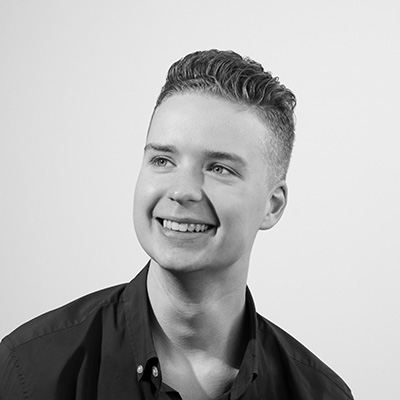George Evans once said “every student can learn, just not on the same day and in the same way.” That quote has particularly stood out to me throughout my journey in education, especially as I approach my final years in the K-12 education system. I am not embarrassed to say it publically: I have a learning disability. I’m not ashamed to admit it because it is a part of my identity, it makes me unique and it allows me the peace of mind to know and respect the fact I learn differently than others.
My story has not been a seamless journey but one with both challenges and opportunities. A voyage that has helped changed my outlook on how we, as an education system, can help those needing the crucial services of special education.
Throughout elementary school, I was not good at subjects such as math and science, but I excelled in others, like English, art and gym. It was in Grade 5 that I accessed Special Education services. Over the next few years, as I began to learn more about what a learning disability was, I quietly began asking myself if perhaps I had one. After all, it made sense – at the age of 12, I was a radio broadcaster, a writer with a sports magazine, genuinely tried to do well in school and was always told I was wise beyond my years. It made no other sense as to why my math and science marks were so low.
Enter Grade 9, my math marks were plummeting and my mother was trying to convince me to see a psychologist. At first, I didn’t want to get tested as I was worried that people might view me differently, but my mom eventually persuaded me.
Within two hours, the phycologist told me I had a learning disability in math. In elementary school, I had learned strategies to support my math learning; however, in high school, my strategies were no longer as effective in the higher level math program.
Going to see the psychologist was one of the best decisions I ever made. I struggled with it for a long time, worrying if I would be looked at differently by my friends and teachers. Looking back, I’m incredibly glad that I made the decision that I did. My Vice-Principal was very supportive and quickly acted to get an IPRC meeting set up, and gave me temporary accommodations in the meantime. By spring of Grade 9, I was formally identified. But the road hasn’t been bump-free. I find myself, especially this year, developing my self-advocacy skills so that I can receive the appropriate accommodations.
It’s funny; I was at a conference this one time running through what we called equity training. A big chunk of the presentation was running through privileges and oppressions in society. The presenter was going through different scenarios and situations and asked if we, as a group, thought it would be classified as a privilege or oppression. Finally, the presenter brought up a learning disability and the entire room shouted out “oppression.” I wasn’t entirely shocked, as to the normal person, that’s a perfectly valid opinion. However, I quickly got up and shared that I believe that it’s more like a privilege; having a learning disability means that I know how I learn and the manner in which I retain information the best. I also have the tools to help me be successful and I don’t view having a learning disability as a burden.
Many students aren’t willing to speak out, but I encourage students with a learning disability to do so. I firmly believe students with a learning disability need to understand how they learn and to advocate for their accommodations. I am a firm believer in supporting the professional development of teachers in the different types of learning disabilities and educating them on their duty to provide accommodations and supports.
Now, as a Student Trustee of a major school board, I’ve come to learn that we need to do better as an educational system in Ontario and to identify students with a learning disability early in their academic careers; to support them fully once they have been formally identified. We need to encourage open and free speech about how different people learn in different ways and always look at how to tailor the learning of individual students towards their specific needs.


